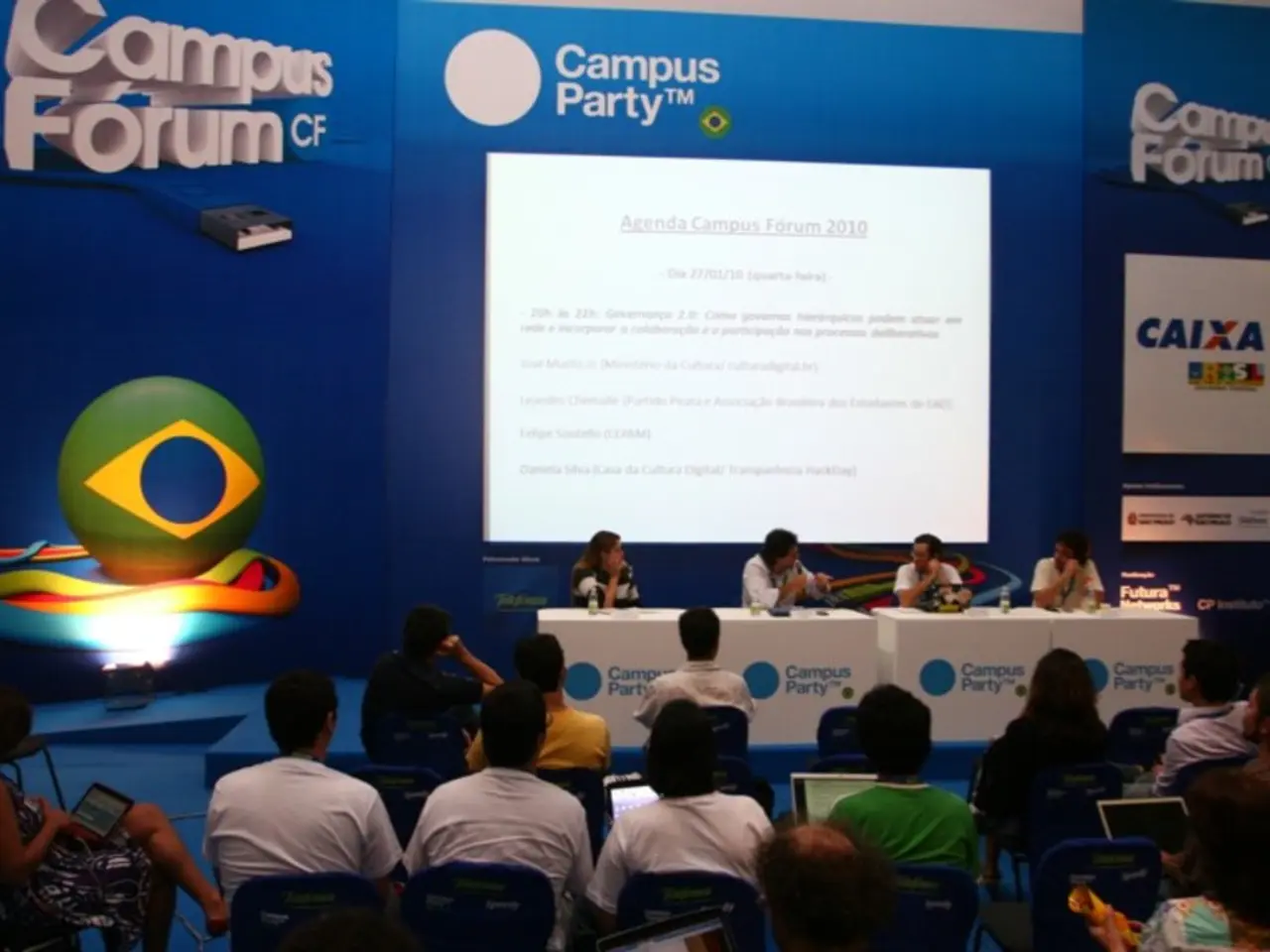Trump Announces Discussion with Intel CEO Lip-Bu Tan and His Cabinet Regarding the Company's Future This Week, Anticipates Making Proposals Next Week - Intel Responds to Announcement
In a significant meeting at the White House, U.S. President Donald Trump and Intel CEO Lip-Bu Tan discussed a range of topics that extended beyond the conflicts of interest. The conversation focused on Intel's commitment to U.S. national and economic security, its efforts to strengthen American technology and semiconductor manufacturing leadership, and the company's strategic priorities.
The meeting, which took place in August 2025, came days after Trump called on Tan to resign over alleged ties to the Chinese high-tech sector. Among the key points discussed were addressing concerns about Tan's Chinese investments and alleged links to Chinese semiconductor firms, Intel's ongoing transformation and innovation efforts, and the company's strategic direction to regain market share in personal computing and make inroads in AI chip markets.
The discussion also involved navigating U.S. government policies and funding programs such as the CHIPS Act, which provides significant subsidies to boost domestic semiconductor manufacturing. Engagement with the administration was crucial to maintain support and avoid escalating tensions.
Another crucial topic was how Intel will work with the U.S. administration to ensure that national security concerns are fully addressed while continuing to innovate and compete globally, particularly under scrutiny about China ties.
Strategies for reducing dependency on Chinese technology firms and discussions about future tariffs or export restrictions were also on the table. Intel's business relies heavily on China, both in terms of revenue and supply chain, making these discussions particularly significant.
However, Intel is aiming to become a leading foundry in the next several years, a move that is not an option due to the high costs of developing leading-edge fabrication processes. The company's R&D operations, which contribute to the U.S. being the world's scientific innovation leader, are among the topics that American company executives are discussing.
The meeting appears to have been a strategic effort for Tan to engage directly with the President and his cabinet to dispel concerns, reaffirm Intel’s commitment to U.S. interests, and secure government backing to continue Intel's turnaround and competitive growth despite prior public conflict.
Despite the positive outcomes, the meeting also resulted in large-scale job cuts at Intel, impacting U.S. engineering talent. The effect of these job cuts has an impact on the U.S. as a whole, raising questions about the balance between national security and economic growth.
[1] New York Times [2] Reuters [3] Bloomberg [4] Washington Post
- The meeting between President Trump and Intel CEO Lip-Bu Tan, as reported by the New York Times, addressed Intel's efforts to reduce dependency on Chinese technology firms, as well as discussions about future tariffs or export restrictions, which are crucial considerations for Intel's business amidst ongoing scrutiny about China ties.
- The Washington Post reported that, despite the meeting aiming to dispel concerns and secure government backing for Intel's turnaround, the outcome led to large-scale job cuts at Intel, impacting U.S. engineering talent. This raises questions about the balance between national security and economic growth, a topic of general-interest news.




